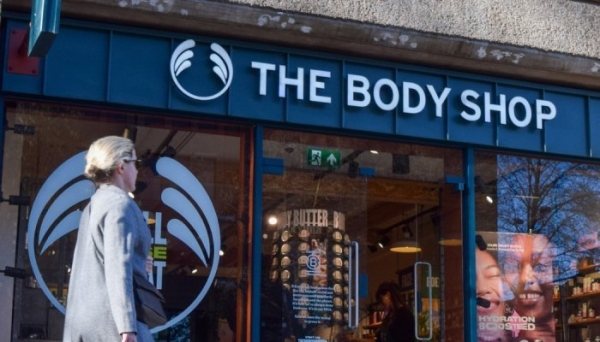
Once a trailblazer in the cosmetics industry, the iconic cosmetics retailer has gone into administration with over 40 percent of its UK stores to close and most of its international subsidiaries have or are expected to declare bankruptcy. According to Ecovia Intelligence, a London-based specialist research and consulting company that focuses on global ethical product industries, the demise of The Body Shopgives some insight into how fast the sustainability arena is changing.
The collapse of the cosmetics firm came as a surprise as it has only been under new ownership since November. The private equity firm Aurelius acquired The Body Shop from Natura & Co. in a deal worth GBP 207 million (EUR 240 million). The Brazilian cosmetics giant sold the business after acquiring it from L’Oréal in 2017. Many saw Natura & Co. as a ‘natural fit’ for The Body Shop since the Brazilian company is one of the most sustainable (large) corporations in the beauty industry. Its flagship brand Natura Brasil has pioneered many green initiatives, involving carbon management, green packaging, and ethical sourcing of raw materials. However, Natura & Co. sold off The Body Shop to the private equity firm for a fraction of what it paid L’Oréal: GBP 880 million (EUR 1.02 billion).
However, Ecovia emphasizes, The Body Shop has long innovated in terms of ethics. It was one of the first brands to actively campaign against animal-testing methods. It was also one of the first to introduce refillable packaging, something that has become fashionable in recent years. It was also one of the first companies to ethically source natural ingredients with its fair trade initiative in 1987. More recently, it was the first beauty brand to use fairly traded plastics in its packaging. In January this year, it was the first major brand to have all its products certified by the Vegan Society.
So what has been responsible for the demise of The Body Shop? Ecovia Intelligence believes it hasn’t been a case of the ethical brand losing its way, but it stood still. The Body Shop was indeed a trailblazer with many of its green initiatives in the 1980s and 1990s. However, the beauty industry has moved on since then. Sustainability is now an integral part of beauty, with almost all cosmetic brands undertaking some green / ethical initiatives. In short, being ethical was no longer good enough.
Competition has played an important role, says Ecovia Intelligence. The Body Shop initially offered shoppers an array of natural cosmetics, made from raw materials sourced from the far corners of the world. Natural cosmetics are now well-established, with major high street retailers like Boots and Superdrug also marketing these products under their private labels.
Competition has also come from rival brands. Lush has taken ethical cosmetics to new levels with its green campaigns and innovative natural products. The UK brand is a pioneer with packaging-free products, selling solid shampoos and naked mascara. About a third of its cosmetic products are sold without packaging. It operates almost 900 Lush stores in 50 countries; some new store openings are ‘naked’ i.e. all cosmetic products have no packaging. One can argue that Lush took the ethical baton from The Body Shop shortly after its formation in 1995.
Changing consumer preferences are another factor, according to Ecovia Intelligence. The Body Shop initially offered consumers a unique shopping experience offering novel natural products, essential oils, and ethical gift packs. Natural cosmetics are now mainstream, whilst mass market brands are also marketing themselves on sustainability attributes. Ethical consumers no longer look at just natural ingredients, but also consider packaging impacts, carbon footprint, social causes, and related green issues when making purchases. There are questions on whether younger consumers, especially Millennials and Gen Y, resonate with the Body Shop brand.
According to Ecovia Intelligence, the demise of The Body Shop highlights how competitive stakes are rising in the sustainable cosmetics arena.
